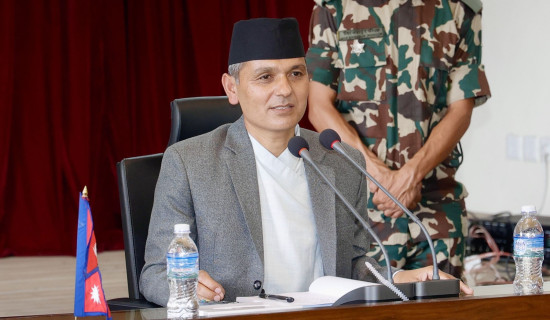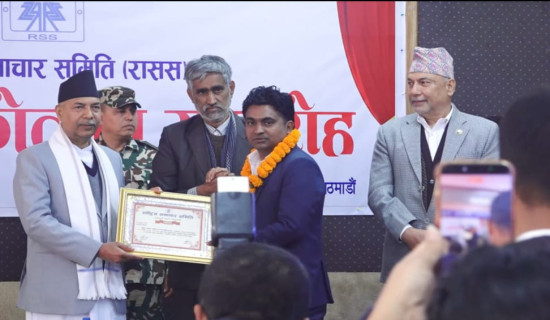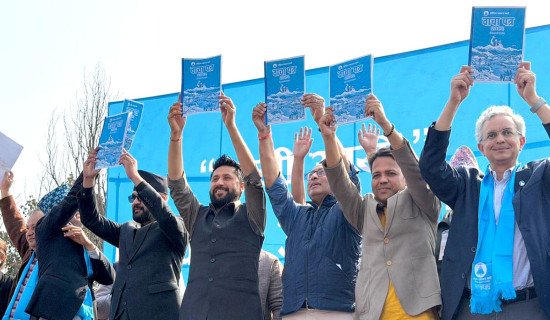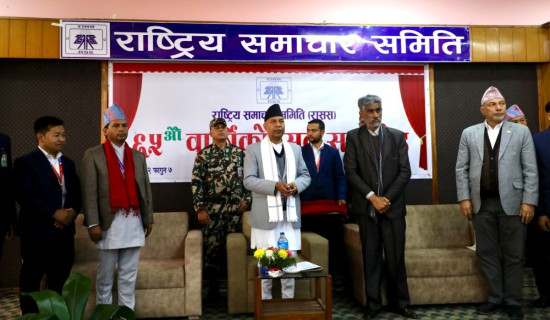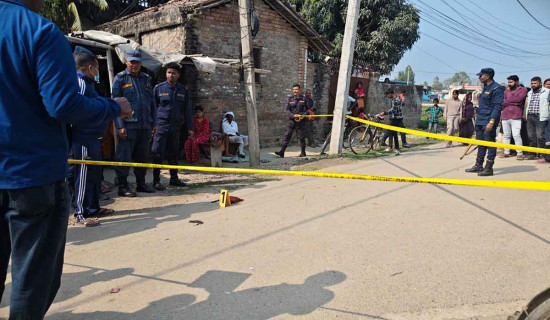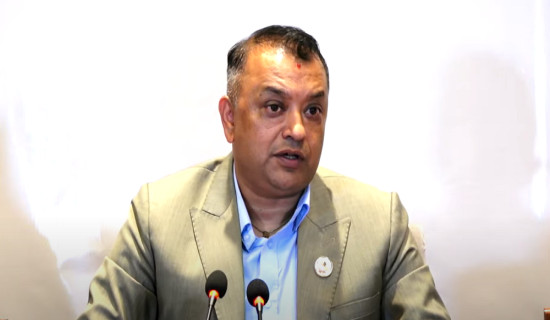- Friday, 20 February 2026
Socialist Centre: A Bargaining Chip?
With an eye on upcoming federal and provincial elections, leftist parties in the current ruling coalition have contemplated forming a socialist centre in a bid to have their sway when they start the seat-sharing process with the Nepali Congress (NC) to contest the elections. Utterances from some leftist leaders hinted they envisaged establishing a socialist centre to mount pressure on the NC, the party that is leading the coalition government. The left parties in the ruling alliance seem to fear that the NC might contest the elections by breaking away from the five-party alliance. They are apprehensive they will not get as many seats as they want.
Another facet of contemplating such a centre is that the left parties want to bring other smaller left parties in the centre. The left parties, led by Pushpa Kamal Dahal Prachanda, Madhav Kumar Nepal, Bam Dev Gautam, Dr. Babu Ram Bhattarai and a few other smaller parties will be the part of the socialist centre and they will contest upcoming elections making an understanding on seat sharing among its constituents.
Package deal
It is likely that these parties may also discuss the package deals to be negotiated with the NC in due time. Important among the package deals will be a deal on sharing power once the ruling alliance scores victory in both elections. In the meantime, such an allocation of seats would give them a favourable chance to repeal the challenges presented by the main opposition, CPN-UML, in polls. Reports suggest that of the 165 seats to be contested under the first-past-the-post electoral system (or direct polling), the NC has sought to keep around 95 seats and wants the rest of the alliance partners to have about 70 seats. The leftist parties, however, egged on the Congress to grant them around 80 to 85 seats. Being the largest among the five ruling parties with a larger vote-base across the nation than the combined strength of ruling partners, the NC has gunned for keeping more seats than its smaller allies.
A few leaders, such as Narayan Kaji Shrestha and Madhav Kumar Nepal, have objected to NC's offer, saying that NC should not exercise its unwarranted 'power' and should not continue singing the same old tune that it is the largest and leading party. They asked Congress to allow 80 seats. To exert pressure on the NC to seat sharing, some of the leftist leaders expressed that if Congress did not budge from its stance, they could ally with their foe, the UML, to contest elections. It is, however, interesting to know that while some talked about joining hands with the UML, the chair of the major opposition party, KP Sharma Oli, known for making sharp remarks, derided the proposed Socialist Centre. He laughed at the attempt, stating that 'some communist leaders would build the centre only to dissolve it.
Any prospect of competing elections by allying with the main opposition party was later laid to rest after UML general secretary Shankar Prasad Pokhrel, after, at a recent mass rally, termed Prachanda and Nepal as communist traitors. The demands of leftist parties make seat arrangements a difficult proposition, given the leftist parties' strategy. The NC is least likely to allow these parties an equal number of seats. Some NC leaders had earlier asked the leadership to contest the upcoming elections single-handedly. That proposition failed to hold for long after the Nepali Congress CWC contested elections by having an electoral alliance with its coalition partners.
Ruling partners brought forth the idea of a socialist centre to serve other purposes. Once they conclude seat sharing with the NC, they may go for power sharing. The strongest among these leftist leaders, Prachanda, has a deep-seated desire to become the PM after the elections, for which he and his fellow leftists must win many seats. They may put forth the idea of a prime minister on a rotational basis. Winning a larger number of seats means they would have a commanding position while making negotiations in their favour. They may further prefer sharing of powerful positions such as President, Vice President, Speaker and Chairperson of the National Assembly, besides key political appointments.
Despite coming up with what appears to be a bargaining strategy, the leftist forces of the ruling coalition know a crucial fact - contesting elections without having an electoral partnership with Congress would not bring in the desired outcome. If these parties fail to form alliances and contest elections on their own, the NC may emerge victorious while the UML may grab a second position. Prachanda's and Nepal's parties performed well in the local elections held two months ago because of their bonding with the Nepali Congress. They need the votes of Congress supporters, while Congress will have a better time by contesting polls by allying with the Maoists Centre, Unified Socialist and JSP. The UML, despite its falling reputation, still holds an edge over communist parties and the JSP.
Rough waters
Contesting elections by forming an alliance would guide them through rough waters. Despite claiming around an equal number of seats, the Prachanda-led left coalition parties do not have the luxury of leaving the NC and fighting their own battle. They should hold rounds of parleys with the Congress to come to a reasonable meeting point so that both sides have a win-win situation when they contest elections through an electoral alliance. Because the ground conditions tell us no force can upset the Congress-left alliance in any election at present.
The freshly contemplated socialist centre has, however, its benefits for the leaders duo, Prachanda and Nepal, as both of them have aimed to bring other smaller left parties into its fold. The combined force of smaller left parties will empower them to confront the challenges of the UML that still boasts of a larger communist vote-base despite its chair's widely scorned anti-constitutional steps of terminating parliament twice that finally drove the nail on the Nepal Communist Party's coffin last year.
(Upadhyay is Managing Editor of this daily)











